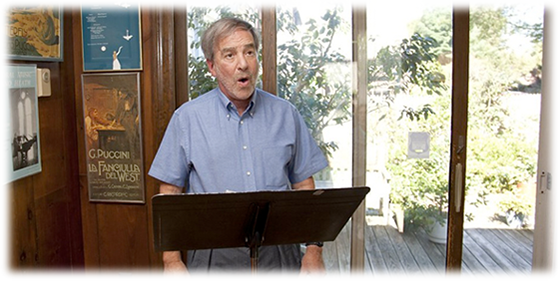Why study vocal technique?
What is repertoire?
How do I choose the right song for my voice?
Check here often for pertinent current events and news!

FREQUENTLY ASKED QUESTIONS
Please check out my answers to frequently-asked questions. I update this section with new Q&As on a regular basis. Please contact me via email or phone to ask your music-related questions. Follow me on Facebook and Twitter and join the conversation! I will be happy to answer your questions and perhaps add them to my list.
Why study vocal technique – I just like to sing?
Let’s apply a sports metaphor. If you wish to become a good tennis player, you need 1) all the proper equipment, 2) top of the line instruction with an experienced and knowledgeable teacher, 3) general conditioning exercises to develop your body, and 4) the techniques, rules, experience to play tennis well. Likewise with singing, if you have the desire to become a good singer, you will need 1) a good “voice” (equipment), 2) excellent instruction with an experienced and knowledgeable teacher, 3) appropriate exercises to develop your voice, and 4) techniques and rules (reading and understanding music) and experience (varied repertoire and performance practice), to perform well.
What is “repertoire”?
This is a list of the music you are able to perform. A repertoire list should play up your strong qualities, suit your voice type and range, and be diverse in genre and style.
Will they ask me to sight read in an audition?
You may be asked to demonstrate all of these skills: 1) vocal range, 2) tonal memory, 3) sight reading. Colleges often test theory knowledge and keyboard skills.
How do I choose the right song for my voice?
You need to know the characteristics of your voice (vocal and dynamic range, voice type, your musical and interpretative abilities, your stage of development). An experienced and knowledgeable teacher will guide you to good choices.
Won’t my voice be enough to get me through auditioning or getting that job?
No. A beautiful expressive voice is a start, but you will need many skills and attributes to be successful.
How do I know if I have a “vocal problem” that is serious?
Vocal health is a primary concern in training. All singers should have a list of professionals that they can consult: 1) an experienced and knowledgeable teacher, 2) Otolaryngologist (ear, nose and throat doctor) who has experience with singers, speakers, actors, and 3) speech therapist. Singers who have a strong technique, are in shape, have appropriate instruction from a highly qualified teacher should not experience vocal injuries unless they are abusing, misusing, and/or overusing their voices. The goal is to train the voice by building a healthy technique to endure for the singer’s lifetime.
